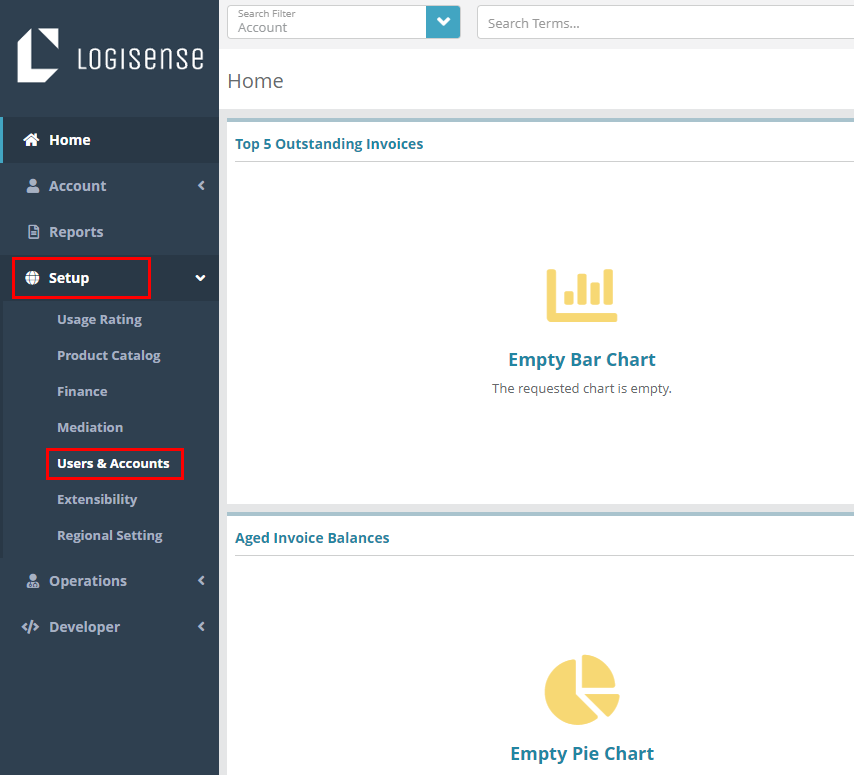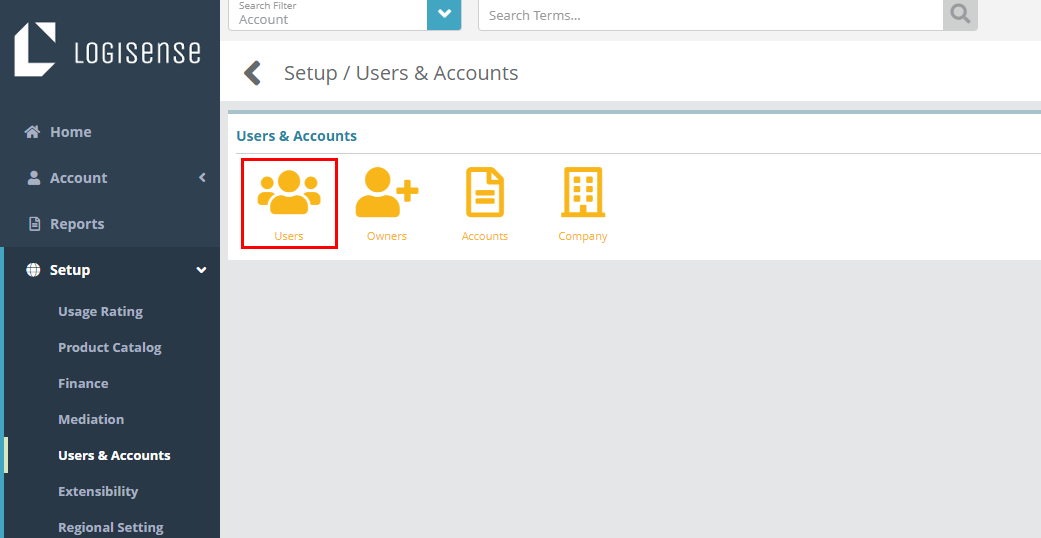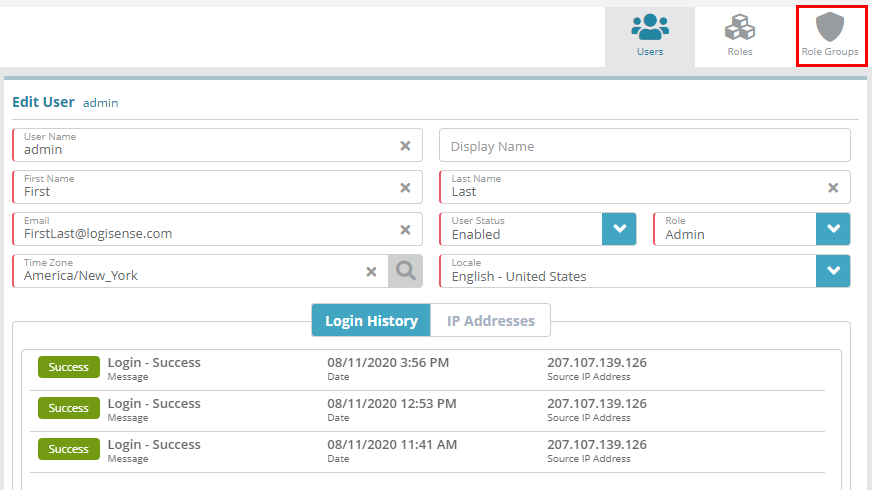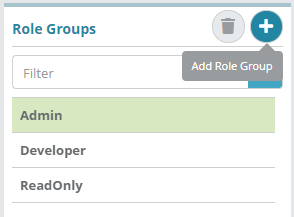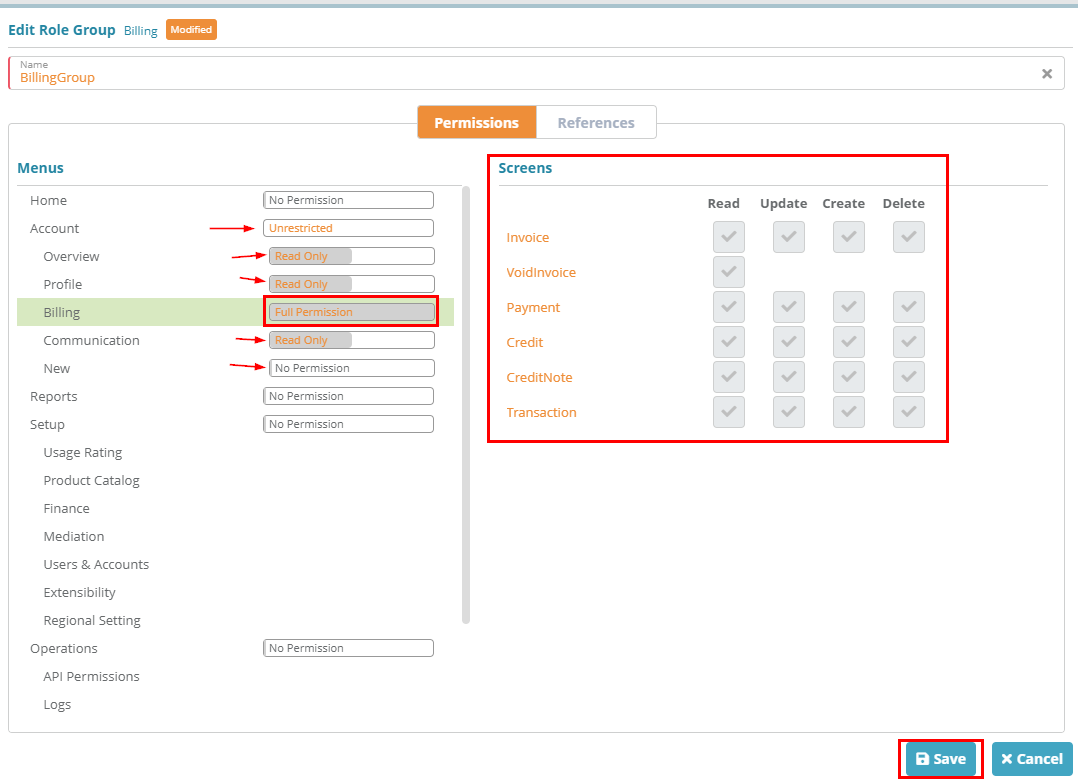Summary
Configuring Role Groups allows allow you to define the specific screen permissions that different users and/or groups will have access to in Logisense Billing. that can be configured on roles in the LogiSense Billing application. For instance, you can setup a role group that can access specific account menu screens and another role group that can access certain setup menu screens and assign both role groups to a role. The role (e.g. ‘finance’) is then configured on a user to define that user’s permissions.
In this example we are going to create a “Billing” ‘Billing’ group that will only have access to the billing options for on accounts. This may be useful for users/groups that only need to initiate billing for an account and do not need access to the various other configuration options.
For additional details on the fields presented on this the role groups screen see the the Configure Role Groups guideScreen screen help article.
Prerequisites
Role groups can be setup as needed, there are no prerequisite configuration steps.
Process
Log into your Logisense the LogiSense Billing application
Click on the “Setup” Setup menu then “Users Users & Accounts” Accounts
Click on “Users” Users
Click on “Role Groups” Role Groups
Click on the “+”
 icon to add a new role group
icon to add a new role groupFirst enter “BillingGroup” ‘BillingGroup’ as the name then:
under the Menus section click the "No Permission" beside Account until it shows as 'unrestricted' Unrestricted
next click "Full Permission" beside Overview until it changes to read only Read Only
do follow the same for the "Profile" and "communication" sub menussteps to set Profile and Communication to Read Only
click on "Full Permission" beside "New" until it changes to "No Permission"
click on "Billing" and leave as "Full Permission". Under On the "Screens" section you can see that this user will have full access to all billing screens
click
Click on
“Save”Save to save the role group
Next Steps
Related Guides
<<documentation team task: link to API guide which covers the same config process>>
...
Once role groups are setup the permissions granted by the groups can be assigned to roles. See the Role Example article for details

